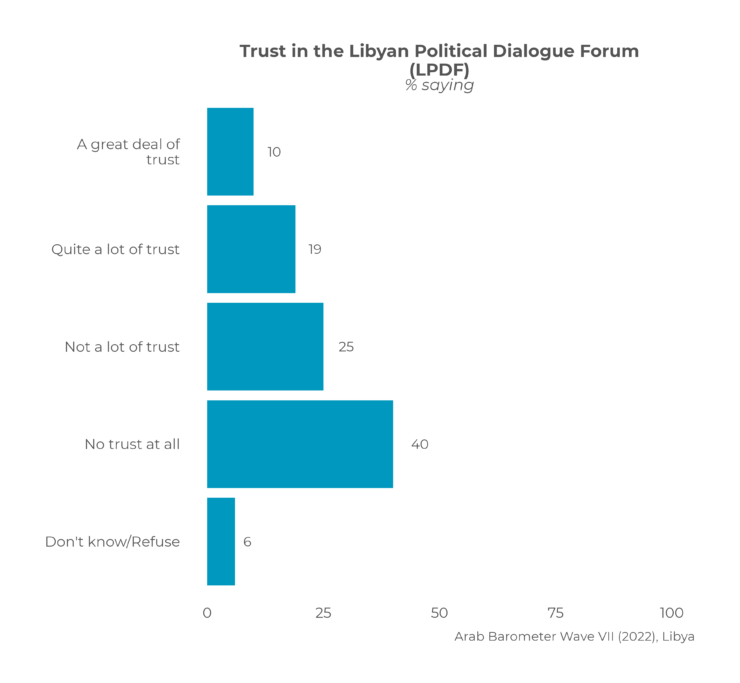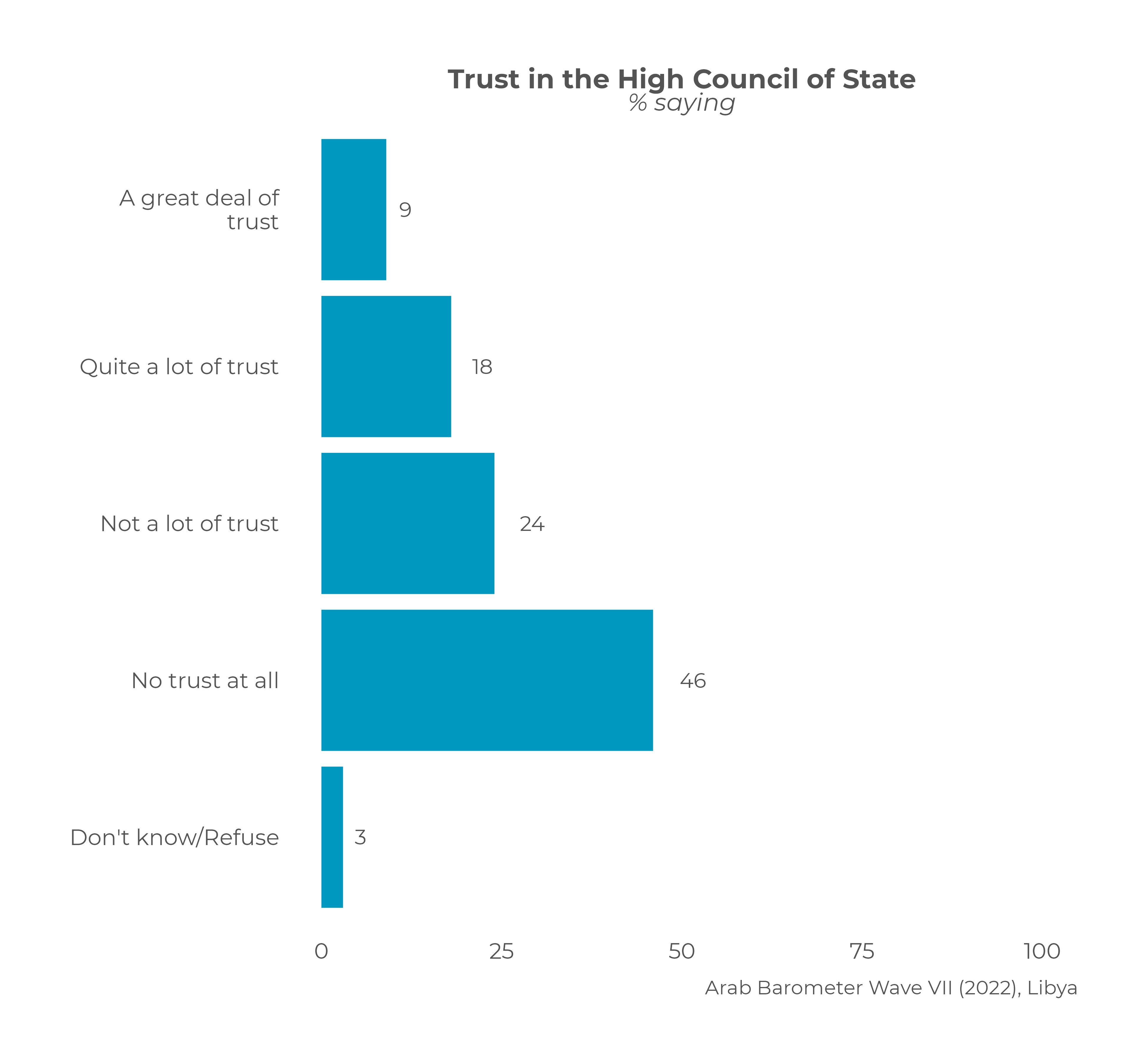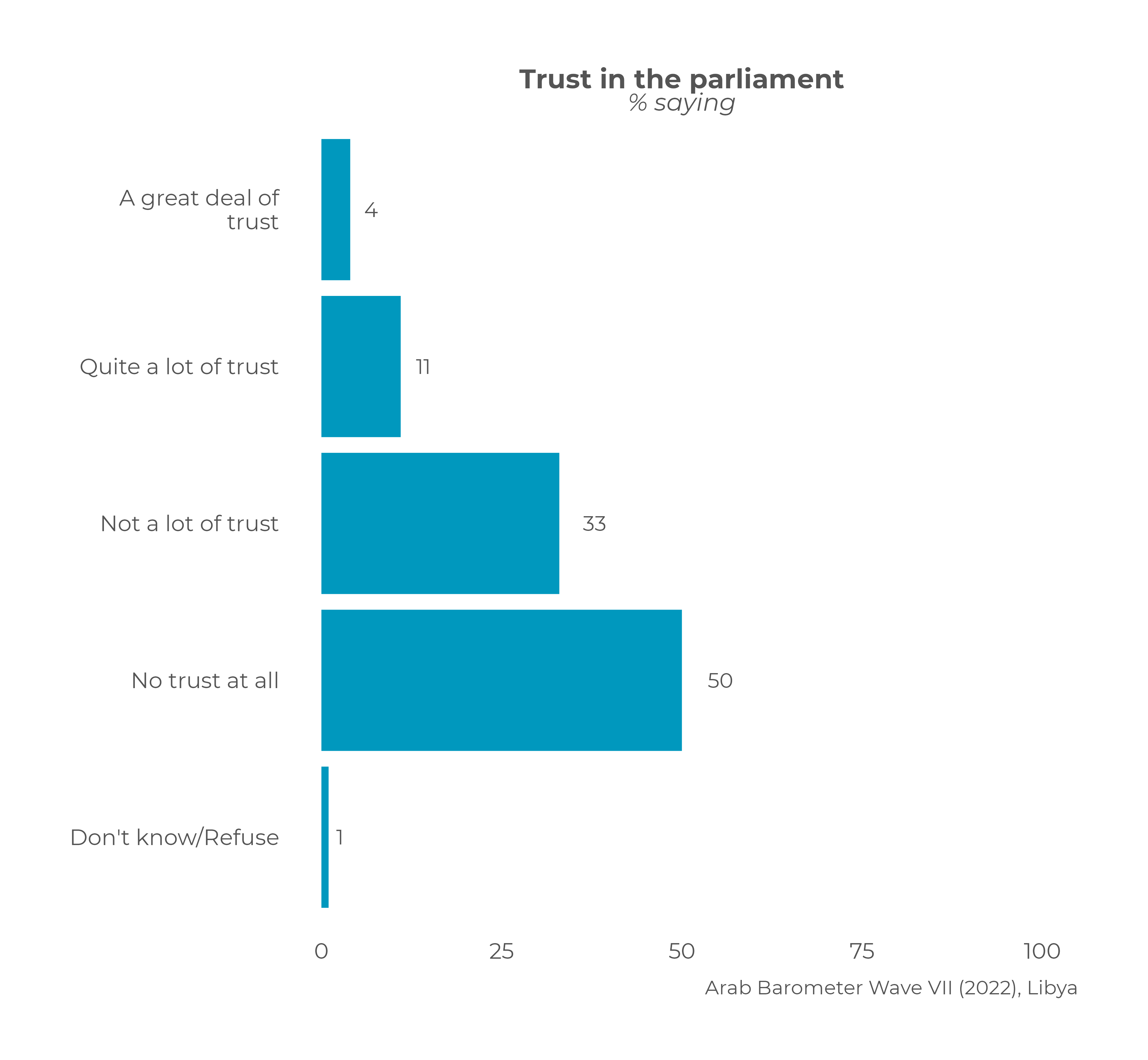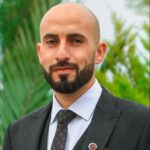Following months of political deadlock, a new political body is in the making to shake up Libya’s political impasse. On February 27, 2023, UN special envoy to Libya, Abdullah Bathily, told the UN Security Council he plans “to establish a High-level Steering Panel for Libya.” Bathily’s plan aims to facilitate the organization of elections, both legislative and presidential in the country this year. Citing failure to agree on a constitutional basis for elections by the House of Representatives (HoR) and the High Council of State (HCS), the UN envoy is using articles of the Libyan Political Agreement (LPA) of 2015 to override both councils. In his statement, Mr. Bathily said that “the political process remains protracted and falls short of the aspirations of the Libyan people.” Arab Barometer’s seventh wave in Libya shows that Libyans are growing impatient with their leaders.
Conducted between February and April of 2022, Arab Barometer’s latest survey in Libya clearly demonstrates that the public’s trust in current political bodies has withered over the years. In the case of the House of Representative (HoR), only 15 percent of Libyans say they have a great deal or quite a lot of trust in the legislative body. The overwhelming majority of people say they have little trust (33 percent) or no trust at all (50 percent) in the HoR. Similarly, the majority say they have little trust (24 percent) or no trust at all (46 percent) in the High Council of State (HCS). Only a quarter (27 percent) say they have a great deal or quite a lot of trust in the HCS.
Mr. Bathily stated that both the HoR and the HCS “have not been able to agree on a consensual constitutional basis for elections,” an arrangement they were supposed to accomplish two years ago, according to the 2020 Roadmap. Previous failures of both bodies had pushed both local and international actors to pursue alternatives. In 2020, the UN formed the Libyan Political Dialogue Forum with a mandate to establish a new roadmap. The LPDF succeeded in agreeing on the 2020 roadmap and formed a new government in early 2021. Though the LPDF has not been active since, it continues to garner more trust than the HoR and the HCS. Although far from a majority, three-in-ten Libyans say they have a great deal (ten percent) or quite a lot (19 percent) of trust in the Forum. The UN envoy’s latest initiative to create a High-level Steering Committee is seen as a repetition of the LPDF plans. While hopeful, some Libyan officials – including Libya’s ambassador to the UN – and experts have expressed cynicism and called upon the UN envoy to learn from past mistakes. While Mr. Bathily’s initiative is certain to disturb the status quo, the extent of its success remains in the unknown, especially as Libyans await to learn more about the Committee Bathily has in mind.






